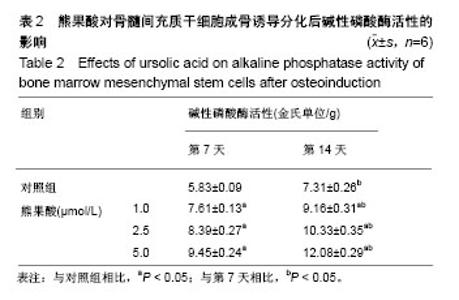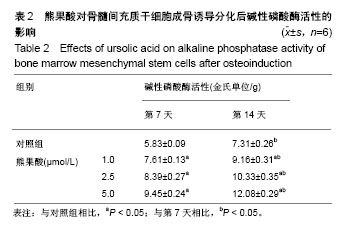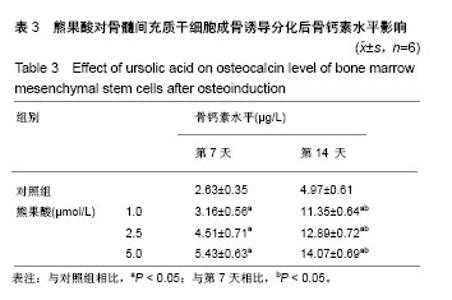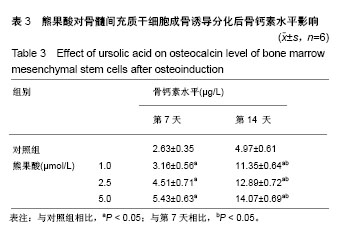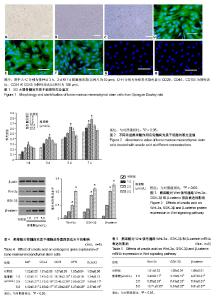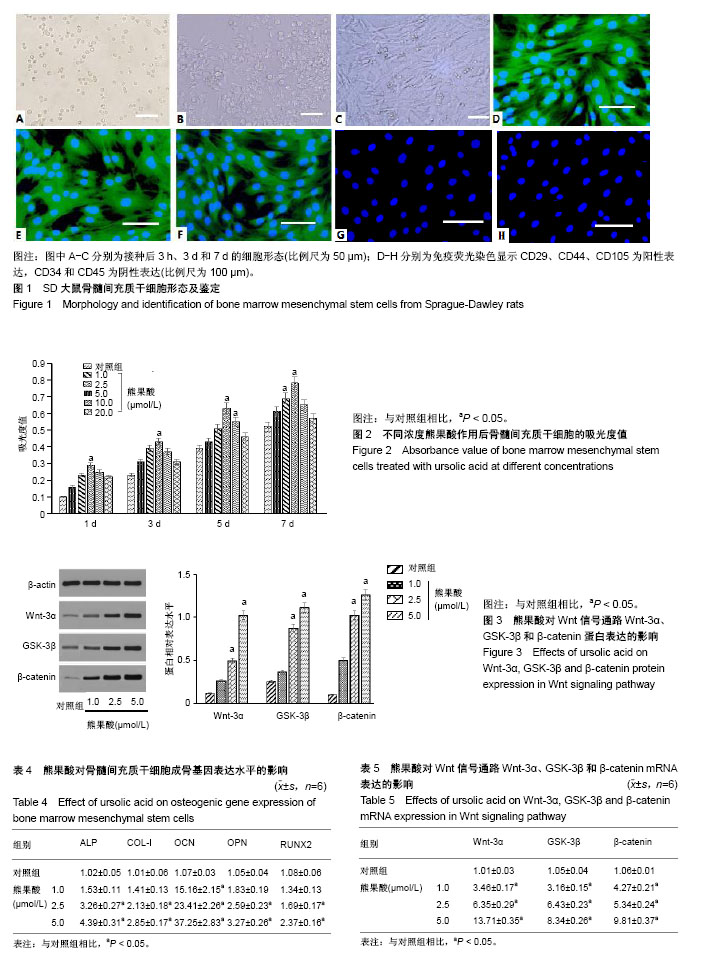| [1] 王傲. 激素性股骨头坏死发病机制的研究进展[J]. 中国骨与关节损伤杂志, 2016, 31(4):445-446.[2] 杨宇,徐子昂,凯赛尔江•艾合买提,等. 激素性股骨头坏死治疗研究进展[J]. 临床军医杂志, 2015, 43(12):1316-1319.[3] 李宗焕,喻爱喜. 股骨头坏死不同保股骨头治疗方法的评价[J]. 临床外科杂志, 2015, 11(5):337-339.[4] Wang T, Teng S, Zhang Y, et al. Role of mesenchymal stem cells on differentiation in steroid-induced avascular necrosis of the femoral head. Exp Ther Med. 2017;13(2):669-675.[5] 刘艳玲,李方兵,赵曦,等. Wnt信号通路在成骨细胞中的作用:成骨还是破骨[J]. 中国组织工程研究, 2014,18(33):5366-5371.[6] Tapia-Rojas C, Inestrosa NC.Loss of canonical Wnt signaling is involved in the pathogenesis of Alzheimer's disease.Neural Regen Res. 2018;13(10):1705-1710.[7] 吴朗,黄成,杨建东. Wnt信号通路对骨髓间充质干细胞向神经样细胞分化的作用研究进展[J]. 实用临床医药杂志, 2016, 20(15): 206-208.[8] Miao CG, Yang YY, He X, et al. Wnt signaling pathway in rheumatoid arthritis, with special emphasis on the different roles in synovial inflammation and bone remodeling. Cell Signal. 2013;25(10):2069-2078.[9] 徐伟丽,牛玲玲,王文侠,等. 经典Wnt信号通路对骨代谢的调节作用[J]. 中国骨质疏松杂志, 2016, 22(3):376-380.[10] 侯广月,翟中华,周莉莉,等. 高效液相色谱法测定大枣中齐墩果酸、熊果酸、环磷酸腺苷和环磷酸鸟苷[J]. 中国卫生检验杂志, 2018, 28(13):1548-1551.[11] 莫颖华,冯白茹,刘道军.枇杷叶中熊果酸和齐墩果酸的提取工艺研究[J].汕头大学医学院学报, 2017, 30(3):137-171.[12] 吴玲. 夏枯草中熊果酸与齐墩果酸提取工艺研究[J]. 食品工业, 2017, 38(7):138-140.[13] 纪晓花. 乌梅熊果酸抑菌活性和抗氧化性研究[J]. 食品工业, 2013, 34(9):142-144.[14] He K, Song S, Zou Z, et al. The Hypoglycemic and Synergistic Effect of Loganin, Morroniside, and Ursolic Acid Isolated from the Fruits of Cornus officinalis. Phytother Res. 2016;30(2): 283-291.[15] Prasad S, Yadav VR, Sung B, et al. Ursolic acid inhibits the growth of human pancreatic cancer and enhances the antitumor potential of gemcitabine in an orthotopic mouse model through suppression of the inflammatory microenvironment. Oncotarget. 2016;7(11):13182-13196.[16] 王思涵,姜欢,于航,等.不同浓度熊果酸对破骨细胞增殖分化的作用及其意义[J].吉林大学学报(医学版), 2017,43(2):236-240.[17] 曾光,陈芳,熊新贵,等. 熊果酸对CIA 大鼠关节炎症及骨质破坏的影响[J]. 湖南中医药大学学报, 2013, 33(7):3-7.[18] 丛洪飞,梁惠,戈娜,等.熊果酸对酒精性骨质疏松大鼠骨形成、骨矿化的影响[J].现代生物医学进展,2017,17(2):220-224.[19] 李晨睿,孟志远,牛银波,等.黄芩苷通过Wnt/β-catenin信号通路对大鼠骨髓间充质干细胞成骨分化的促进作用[J].中国药理学通报, 2015, 31(7):919-924. [20] Bayati V, Hashemitabar M, Gazor R, et al. Expression of surface markers and myogenic potential of rat bone marrow- and adipose-derived stem cells: a comparative study. Anat Cell Biol. 2013;46(2):113-121.[21] Bai R, Liu W, Zhao A, et al. Nitric oxide content and apoptosis rate in steroid-induced avascular necrosis of the femoral head. Exp Ther Med. 2015;10(2):591-597.[22] 杨建伟,周临东,林清宇. 中药治疗激素性股骨头缺血性坏死相关作用机制研究进展[J]. 上海中医药杂志, 2016, 11(5):97-101.[23] 向小兵.活血生骨汤治疗中老年激素性股骨头坏死的临床疗效[J].药物评价,2017,14(17):31-34.[24] 陈雷雷,陈晓波,洪郭驹,等. 活血祛瘀法干预激素性股骨头坏死骨组织的修复[J]. 中国组织工程研究, 2016, 20(15):2148-2155.[25] 陈晓,苏佳灿.骨质疏松研究热点:骨髓间充质干细胞分化命运[J]. 第二军医大学学报, 2017,38(4):397-404.[26] 阿勒泰别克•闹乎旦,张玉玲,白广超,等. Wnt因子联合BMP-7诱导BMSCs向成骨分化的研究[J].石河子大学学报(自然科学版), 2017, 35(1):113-118.[27] 李文雄,张晶宇,杨锋.中药调控骨髓间充质干细胞成骨分化的研究进展[J].中医正骨, 2016, 28(7):68-71.[28] Pujari-Palmer M, Pujari-Palmer S, Lu X, et al. Pyrophosphate Stimulates Differentiation, Matrix Gene Expression and Alkaline Phosphatase Activity in Osteoblasts. PLoS One. 2016;11(10): e0163530.[29] 张乃丹,蒋益萍,薛黎明,等. 仙茅酚苷类成分促进成骨细胞骨形成和抑制破骨细胞骨吸收[J]. 第二军医大学学报, 2016, 37(5): 562-568.[30] 杨志烈,王成龙,赵东峰,等. 淫羊藿苷对环磷酰胺化疗导致小鼠骨髓间充质干细胞成骨分化障碍的保护作用[J]. 中国组织工程研究, 2016, 20(6):777-784.[31] Li J, Zhang H, Yang C, et al. An overview of osteocalcin progress. J Bone Miner Metab. 2016;34(4):367-379.[32] 蔡晓燕,董光富.脂代谢及血清骨钙素水平与骨质疏松症的相关性分析[J]. 中国骨质疏松杂志, 2016, 22(6):711-712.[33] 李敏,高毅,穆春晖,等. 补肾活血固齿方对小鼠颅顶前成骨细胞骨钙素合成的影响[J]. 河北中医, 2017,39(8):107-110.[34] Shen J, James AW, Zhang X, et al. Novel Wnt Regulator NEL-Like Molecule-1 Antagonizes Adipogenesis and Augments Osteogenesis Induced by Bone Morphogenetic Protein 2. Am J Pathol. 2016;186(2):419-434.[35] 史素琴,潘研,岳新,等.Egr-1通过上调NDRG1诱导骨髓间充质干细胞成骨分化[J].重庆医学, 2017, 46(4):442-445.[36] 梁广胜,陈伟才,殷嫦嫦,等.淫羊藿总黄酮对大鼠骨髓间充质干细胞成骨分化过程BMP-2/RunX2/OSX通路的影响[J]. 中国中西医结合杂志, 2016, 36(5):614-618. [37] 张哲,徐秀娟,刘欣,等. 老鹳草素对小鼠骨髓基质干细胞增殖及成骨分化的影响[J]. 中国临床药理学杂志, 2016, 32(7):633-636.[38] Wang JY, Yin CC, Wu CC, et al. Icaritin promotes chondrogenic differentiation of BMSCs by Wnt/β-catenin signaling pathway. Zhongguo Zhong Yao Za Zhi. 2016;41(4):694-699.[39] 周予婧,王朴,陈红英,等.脉冲电磁场对大鼠骨髓间充质干细胞增殖、成骨分化和Wnt/β-catenin信号通路的影响[J]. 四川大学学报(医学版), 2015, 46(3):347-353.[40] 陈云刚,谭国庆,任维龙,等. 骨碎补含药血清经wnt/β-catenin信号通路对大鼠骨髓间充质干细胞成骨分化的影响[J]. 中国药理学通报, 2017, 33(6):830-836.[41] Huang W, Zheng X, Yang X, et al. Stimulation of Osteogenic Differentiation by Saikosaponin-A in Bone Marrow Stromal Cells Via WNT/β-Catenin Pathway. Calcif Tissue Int. 2017; 100(4):392-401. |
